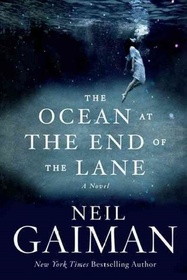Helpful Score: 2
I loved this book! It deals with the truths of childhood memories - did things happen as we remember them, or do we make up our own truths to be the way we need them to be?
The narrator's memories of his 7-year-old self are of a world that takes magical realism to its max. His adventures revolve around his family and the neighboring Hempstock household, consisting of the Lettie (maiden), Ginnie (mother), and Granny (crone) - an altered version of the triple goddess. These powerful women seem to have the ability to transform reality. But are the magic and monsters really a child's coping mechanism to deal with the suicide of their boarder and his father's infidelity with the nanny - big things for a 7-year-old to be exposed to?
Also, loved the way that water is represented as a healing force. The water becomes a character in itself
The narrator's memories of his 7-year-old self are of a world that takes magical realism to its max. His adventures revolve around his family and the neighboring Hempstock household, consisting of the Lettie (maiden), Ginnie (mother), and Granny (crone) - an altered version of the triple goddess. These powerful women seem to have the ability to transform reality. But are the magic and monsters really a child's coping mechanism to deal with the suicide of their boarder and his father's infidelity with the nanny - big things for a 7-year-old to be exposed to?
Also, loved the way that water is represented as a healing force. The water becomes a character in itself




